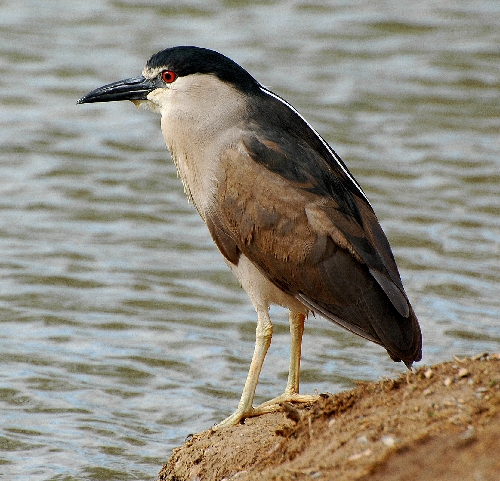Red Rock Audubon Society campaign to focus on Mount Charleston birds

No offense intended, birds of Mount Charleston, but your cover is about to be blown.
Few know about the 226 varieties of birds that migrate to or call the Spring Mountains National Recreation Area home. Among the few in-the-know is the Red Rock Audubon Society, the force behind a new educational initiative funded by a Nevada Division of State Lands grant.
The societys three-pronged plan includes the creation and distribution of a brochure about the birds, sale of a postcard and field trip walks guided by a naturalist through bird-populated trails on Mount Charleston.
Each element of the project is free and available to the public. Groups of about 15 or fewer are encouraged to utilize the walks.
Youre guaranteed to see at least 40 species on a walk, said Marilyn Mackett, brochure chairwoman and local birder. Theyre beautiful up there.
The society submitted a proposal for a $15,000 grant two years ago, Mackett said .
The grant is funded by fees collected from individuals who purchase the Mount Charleston license plate bearing the image of the mountain range under an orange sky.
The brochure, which includes information about bird varieties and where they can be spotted, is available at the Spring Mountains Visitor Center. In addition to the available hikes, the society will offer programs for visitors at Mount Charleston campgrounds to enhance their wilderness experience.
The society also has reached out to residents of the area to familiarize them with species so they can help document sightings.
Most people dont know how many bird species are up there or which are rare or endangered, said Robert Wilkin, Red Rock Audubon Society president. Our goal is to educate the entire public about the birds and all wildlife and how to protect the habitat. We want them to be very aware of what they have and the treasure they are helping protect.
Most of the birds never make their way to the Las Vegas Valley due in part to its low elevation, extreme temperatures and limited food resources, Wilkin said.
Among the birds sighted at various times of year at Mount Charleston are hairy woodpecker; ladder-backed woodpecker; red-naped sapsucker; black phoebe; loggerhead shrike; white-breasted nuthatch; mountain chickadee; stellers jay; Western scrub-jay; red-tailed hawk; coopers hawk; cedar waxwing; graces warbler and the painted redstart.
The National Audubon Society has designated the Spring Mountains National Recreation Area as an Important Bird Area. The distinction identifies areas vital to birds and other biodiversity in an effort to help foster conservation.
The area is part of the Pacific Flyway, a north-south route of travel for migratory birds.
Interpretive hikes will start at the Mount Charleston Public Library, 75 Ski Chalet Place.
Plans for night hikes to explore owls and other nocturnal birds are being discussed, Mackett said.
For those who want to participate in a more frequent bird-watching experience, the society offers two local outings. The society meets at 8 a.m. each first Saturday of the month at the Springs Preserve, 333 S. Valley View Blvd., and at 8 a.m. on the third Saturday of the month at Floyd Lamb Park at Tule Springs, 9200 Tule Springs Road.
The Floyd Lamb Park at Tule Springs gathering includes free entry into the park. Birders meet in parking lot No. 5, in the eastern part of the park.
The walks are free and open to the public. For more information or to arrange a field trip, visit redrockaudubon.org or call 390-9890.
Contact Centennial and Paradise View reporter Maggie Lillis at mlillis@viewnews.com or 477-3839.